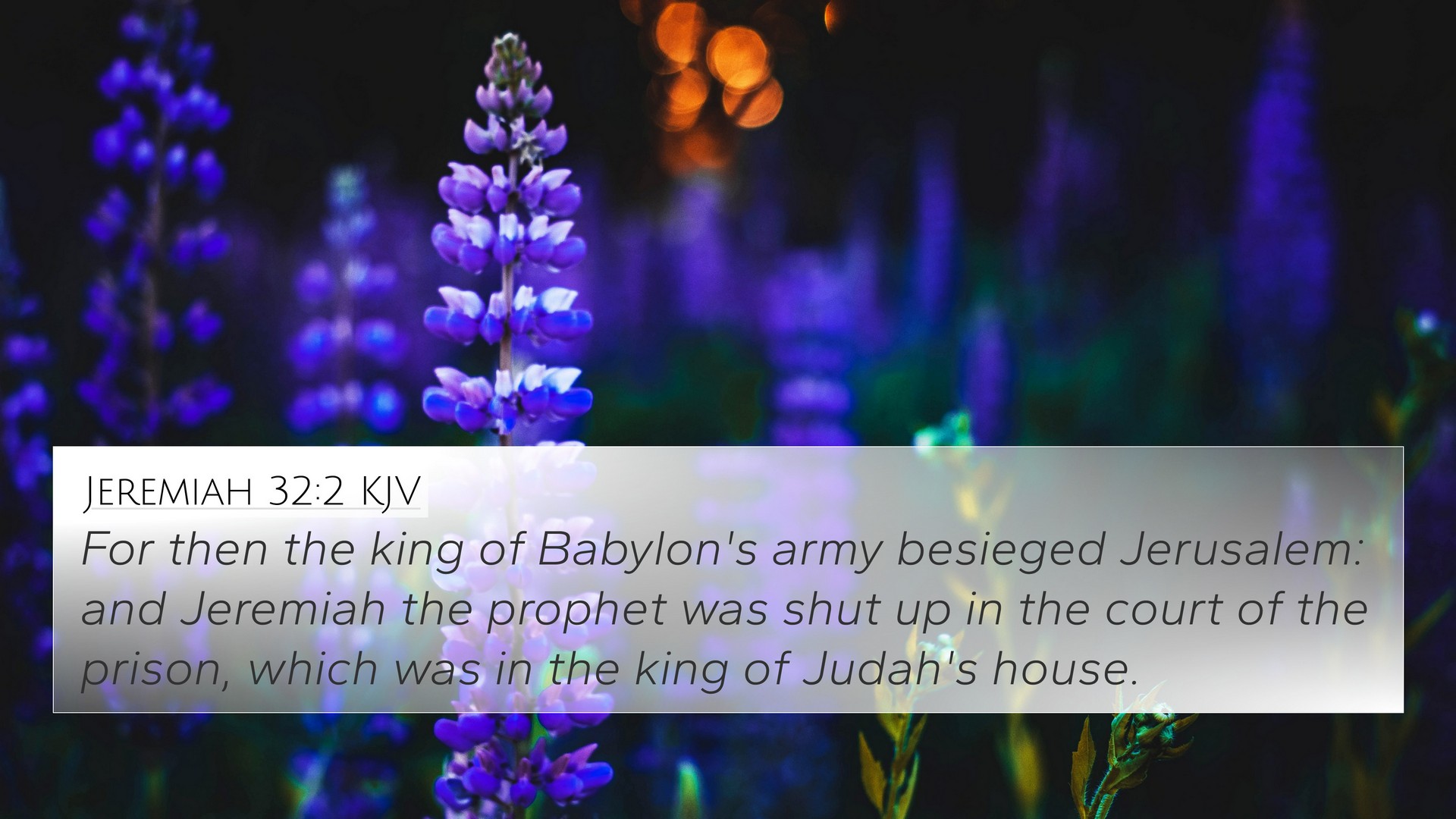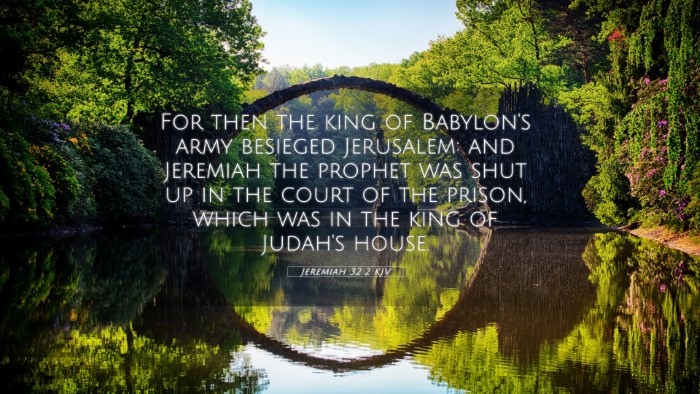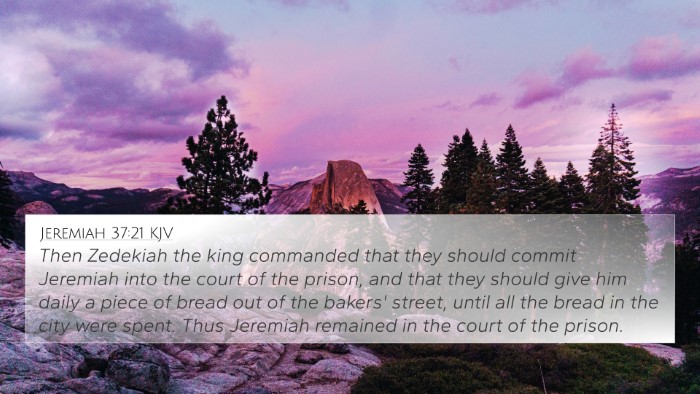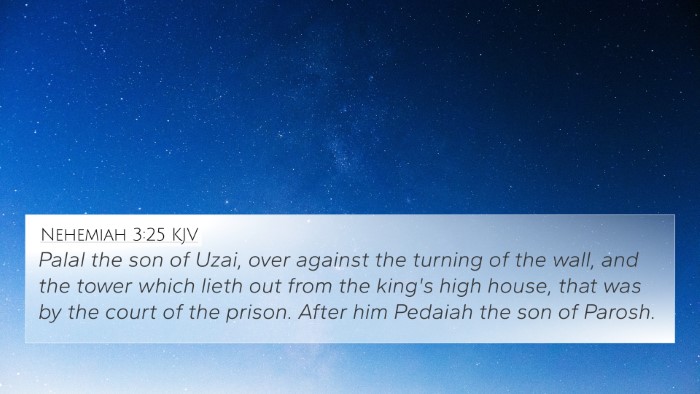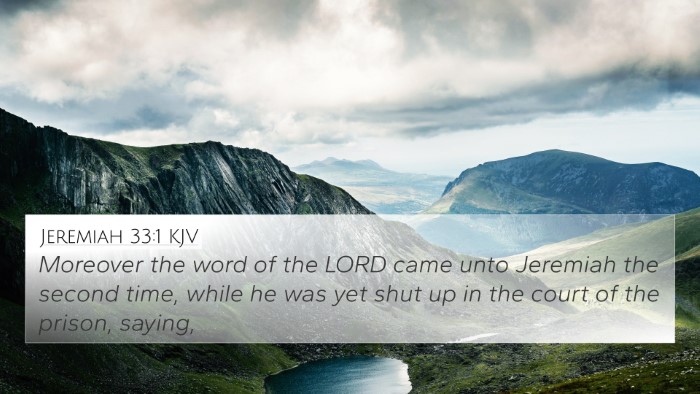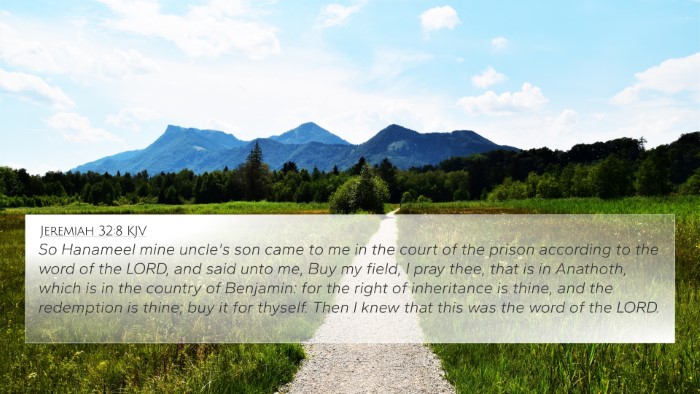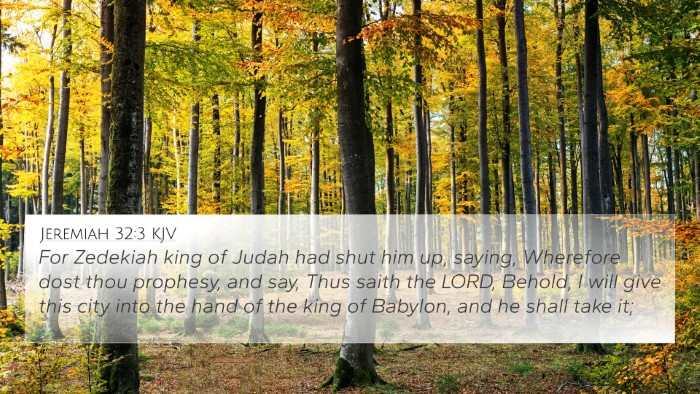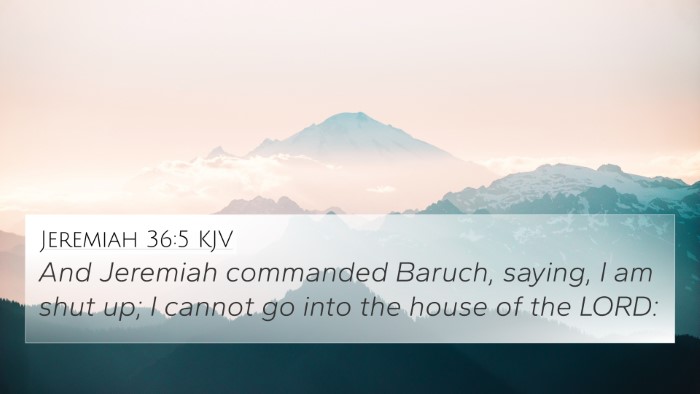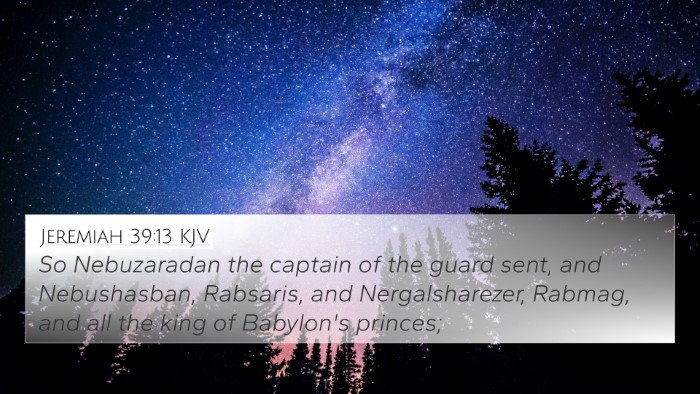Understanding Jeremiah 32:2
Jeremiah 32:2 states, "At that time, the army of the king of Babylon was besieging Jerusalem, and the prophet Jeremiah was confined in the courtyard of the guard in the royal palace of Judah." This verse is deeply significant as it sets the context for Jeremiah's prophetic ministry amid dire circumstances.
Context of the Verse
The verse takes place during a critical moment in Judah's history. The Babylonian siege depicted in this passage illustrates the impending doom and the captivity that awaited the people of Judah because of their unfaithfulness to God.
Insights from Public Domain Commentaries
- Matthew Henry: Henry emphasizes the struggle Jeremiah faced both physically, being imprisoned, and spiritually, as he delivered God's truth amidst overwhelming opposition. He reflects on the faithfulness of God in severe circumstances.
- Albert Barnes: Barnes highlights the historical setting, noting the fear that gripped Jerusalem and how this backdrop makes Jeremiah’s prophecies all the more poignant. He elaborates on how the prophecy signifies God’s ultimate plan of restoration despite current despair.
- Adam Clarke: Clarke draws attention to the implications of Jeremiah's imprisonment. He views this as a testament to the cost of prophetic ministry, where truth often leads to suffering. He discusses God's sovereignty over events despite Jeremiah’s confinement.
Thematic Connections
This verse serves as a profound reminder of the struggle between faith and despair, especially during moments when God's people face adversity. It bears connections to several themes present throughout Scripture, illustrating how God remains present even in times of trouble.
Cross-References
- 2 Kings 24:10-11: Highlights the siege of Jerusalem by the Babylonians.
- Jeremiah 37:4-5: Further depicts Jeremiah’s confinement during the siege.
- Ezekiel 12:6: Refers to the captivity foretold by the prophets.
- Isaiah 39:5-6: Conveys the prophecy regarding the Babylonian captivity.
- Jeremiah 29:10: Promises restoration after captivity.
- Hebrews 11:32-34: Reflects on the faith of prophets despite adversity.
- Romans 8:28: Assures that God works for the good in all circumstances.
- John 16:33: Jesus speaks of overcoming the world in the face of tribulation.
- Psalm 137:1-4: Laments the Israelite captivity and longing for homeland.
- Matthew 5:10-12: Encouragement about suffering for righteousness' sake.
Practical Applications
Jeremiah 32:2 prompts readers to consider the steadfastness required in their faith. It encourages believers to trust in God's presence amid trials and affirm that through suffering, there can be a deeper reliance on God’s promises.
Cross-Referencing and Thematic Analysis
When studying this verse, it can be advantageous to utilize tools for Bible cross-referencing to find connections between different scriptures that discuss themes of prophetic ministry, adversity, and God’s unwavering promises. Here's how to approach this:
- Using a Bible Concordance: This can help identify and draw links to verses that support similar themes, enriching your understanding.
- Cross-Reference Bible Study: By comparing this verse to others, you can deepen your insights into thematic connections, such as faith under trial.
- Identifying Connections: Look for cross-references that link Jeremiah's themes with New Testament teachings for a comprehensive understanding.
- Comprehensive Resources: Utilize Bible reference resources and guides to organize your findings and interpret these connections effectively.
Conclusion
Jeremiah 32:2 is more than a historical account; it’s a compelling reminder of faith, prophecy, and divine purpose amid trials. By engaging in detailed cross-referencing, believers can uncover a deep inter-Biblical dialogue that enhances their understanding of God’s word and encourages their faith journey.
